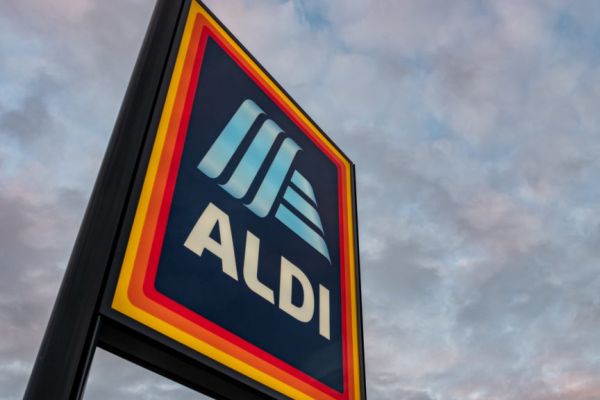The Irish food-to-go market is thriving, according to a study commissioned by Kepak Group, which reveals that 99% of adults in Ireland have purchased food and drinks to go. Maev Martin reports.
This article originally featured in the Checkout Magazine: June 2019 Edition.
Statistics show that the demand for on-the-go food in Ireland is ahead of the market in the UK, where 60% of adults purchase food and drinks to go on a regular basis (weekly+), compared to 72% of adults in Ireland who regularly buy these products – and the market demands are increasing, with higher percentages of Irish millennials, Gen Z and Gen X making food-to-go purchases on a regular basis.
The research, conducted by Coyne and co-funded by Kepak Group, also shows that 54% of people who make such purchases believe that they help them to lead ‘fuller lives’ and have more ‘engaging experiences’, with a further 19% buying for ‘health and well-being’ purposes.
According to the research, a total of 62% consider hot on-the-go beverages an indulgence, while 27% admit that they need them to ‘survive’ as they lead their busy lives.
The statistics were released in advance of Kepak’s sponsorship of the Food To Go Summit, which took place in Dublin’s Mansion House on 21 May and sought to examine the future of the rapidly growing segment, which includes convenience stores, supermarkets, and petrol stations with forecourt convenience stores.
Speakers included Gavin Rothwell, head of food to go and retail safaris at IGD; Maureen Gahan, foodservice specialist with Bord Bia; Martin Kelleher, managing director, Musgrave Retail Partners Ireland; Noel Smith, founder, Fresh: The Good Food Market; Tormond Lier, director, Deli de Luca; Ross Mooney, Google Ireland; Peter Rigney and Brendan Boyle, creative and design directors, TAP Creations; Tom Fender, managing director, Bolt Learning, and former co-owner of the HIM shopper research consultancy; and Shane Kavanagh, founder, Crussh.
Centra’s 2020 Vision
The total size of the food-to-go segment on the island of Ireland in 2018 was €458 million in terms of consumer spending and €160 million in operator purchases, according to the latest Irish Foodservice Market Insights (Bord Bia, November 2018). The research also revealed that 2019-2022 forecasted growth for consumer spending in the segment is expected to be up by 5.2% for the island of Ireland, generating €560 million.
Musgrave is one company that has really capitalised on this market and is set to make further inroads. Martin Kelleher, managing director of Musgrave Retail Partners Ireland, told delegates that Centra’s vision for 2020 is to “redefine convenience with a healthier, more innovative offer.” Successful food-to-go offerings provide “clarity, consistency and leadership” and are about the product, the people serving it, how the offer is communicated, and the environment in which it is presented in store.
Kelleher spoke about what makes a successful food-to-go concept, highlighting some of Musgrave’s most successful brands in the food-to-go space – Frank and Honest, Caramico, the Kitchen and Moo’d – highlighting how each of these four brands had ticked the product, people, communications and environment boxes. The introduction of in-store cafes was a significant innovation for Musgrave in the food-to-go space, and it is taking that a step further, with the roll-out of its first stand-alone Frank and Honest coffee shop, in Dunboyne, Co Meath (Checkout May 2019).
In terms of the future of Musgrave and the food-to-go market, Kelleher said that it was all about introducing technologies (such as its Beat the Queue app) that make it easier for the consumer to avail of the food-to-go offer, providing products that are healthy and packaged in a sustainable manner, and the food-to-go environment and experience in store.
Best-In-Class Worldwide Destinations
Gavin Rothwell, head of retail safaris and food to go with IGD, looked at the segment across Europe and beyond.
IGD’s top food-to-go destinations for its retail safaris include the North American West Coast – Seattle and Vancouver – where it visits to see better-for-you concepts, better-for-the-planet concepts, technological innovation, and coffee. The North American East Coast – Toronto, Boston and New York – is all about the great execution of best-in-class food to go in supermarkets.
Norway excels in offering best-in-class food to go in hybrids and forecourts, London has an excellent array of best-in-class food-to-go specialists, while Paris does sustainable convenience and food-to-go fusion really well.
In the Netherlands, big retailers are making the most of food to go, while Ireland showcases best-in-class food to go in the convenience and forecourt segments. Some of Europe’s standout food-to-go operations highlighted in Rothwell’s presentation included Eataly in Milan, Markthal in Rotterdam, Foodhallen in Amsterdam, and the Time Out Market in Lisbon.
Rothwell advised retailers to build a deeper understanding of consumer missions and to show that they understand their needs, saying, “Create enticing environments, with relaxed seating areas, deliver a service focus to match the mission, using digital where relevant, and be more of a community hub, using events to draw customers in more often and sell the dream.
“Ensure local differentiation between stores, even those within the same chain, and deliver a wide range of food-to-go offers, from different cuisines to free-from and vegan, underpinned by great coffee. Think about economies of scale across fresh, food for now and food for later, ensure that the pricing matches the mission, and introduce a breadth of price points where required. Most importantly, you need to put seasonality at the heart of your appeal – use it in promotions and deliver an ethically sound supply chain.”
Rothwell indicated that food to go is attracting greater interest from retailers and restaurateurs alike, saying, “Health & wellness and choice are what food-to-go consumers want more of, so that is where the big business opportunities lie, and partnership is a strengthening trend in this sector, as evidenced by Hana Group and Sainsbury’s, Foodmaker and Delhaize, and Picadeli and Hemköp. These new partnerships are helping these businesses to further differentiate their offering in a crowded market.”
Premium Food On The Go
Deli de Luca director Tormond Lier told delegates that his operation is joining forces with Esso, the national fuel station network in Norway, to “set a new standard for road food”.
The company has been operating in the Norwegian market for 15 years. It is a market with five million people and a total turnover of €1.5 billion in convenience retail. Deli de Luca’s total turnover is €200 million, and it has 100 restaurants on the road and in major cities.
“In times of rapid change, we need to keep up with consumers,” Lier said. “We have to offer complete food solutions, respond to the strong demand for product selection and innovation, provide healthy and free-of alternatives, sit-down and takeaway options, and, of course, value for money. Deli de Luca offers a high-quality food and drink experience. We offer innovation and authenticity – tasty food and drinks that are full of flavour and colour. Our products are freshly made every day from our own kitchen, which is dedicated to quality, food safety, labelling, and convenient packaging, and we are always on top of the latest trends and engage in a quick roll-out, from first idea to launch.”
Lier told delegates that the business revolves around three strategic concepts: premium on-the-go food, which is the main focus, dine-in restaurants along the road, and the fast-growing take-home segment. He said that Deli de Luca is expanding its customer group to include families.
“The primary user of Deli de Luca is women in the 15-39 age bracket who are based in Oslo, while the primary users of Esso fuel stations are single male drivers on high incomes. We have a defined structure in place that comprises mystery shoppers, focus groups, in-store shopper panels and consumer research, to ensure customer involvement. That structure allows us to secure insights into our customers’ needs. Secret testing of all stores and employees is executed monthly.
The test includes evaluation of customer interaction, the customer transaction experience, and mandatory employee requirements, among others. Focus groups are conducted four times a year, both for Esso consumers and the Deli de Luca urban consumers. Interviews with consumers visiting the stores are conducted every three months, to get a ‘live’ evaluation of the store concept, and we gain a lot of consumer insights via consumer surveys.”
Lier concluded his presentation by telling delegates that his vision for Deli de Luca is to become Europe’s best convenience concept in the city and by the road, and to double the company’s food and beverage turnover between 2017 and 2021.
Age Of Assistance
Ross Mooney, head of sales, large customers, with Google Ireland, looked at food to go in the age of (technological) assistance, and how the ‘assistant era’ is changing consumer behaviour.
“We are seeing 20% more orders to the desk at lunchtime, 20% more orders on a Monday, and 34% more searches for healthy food,” Mooney said. “Two in five dining-out decisions are made on the spur of the moment, while 37% are looking for information to use immediately. Since 2011, food-near-me searches have grown by 129% year on year, and by 70% from mobile devices. Also, 38% of people are seeking information on restaurants or shops that are within a few hundred yards of where they are. In addition, food videos are the third most-watched category on YouTube, and 71% are watching on mobile.”
There has also been a 50% year-on-year increase in those dining at their work desks. Some 36% of households and 89% of singles are availing of the likes of Just Eat, Uber Eats and Deliveroo, with takeaways increasing by 30% year on year. So, what do all of these statistics mean for retailers in the food-to-go space?
“Show up, wise up, and speed up!” he said.
© 2019 Checkout – your source for the latest Irish retail news. Article by Maev Martin. Click sign-up to subscribe to Checkout.






